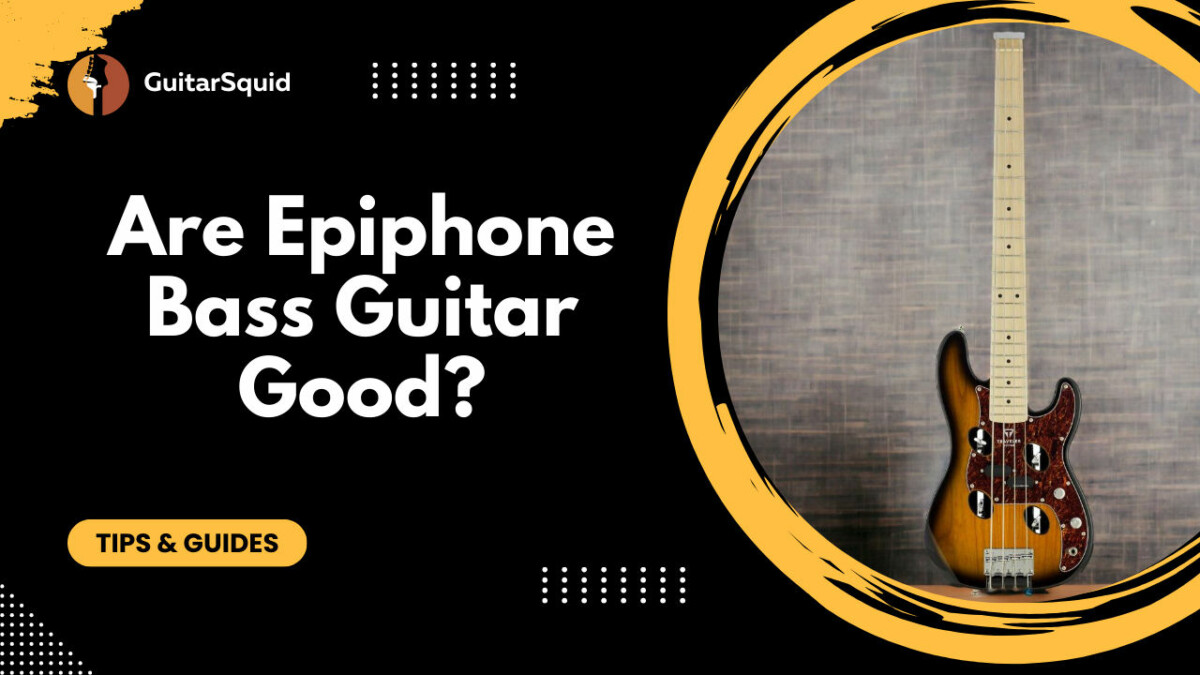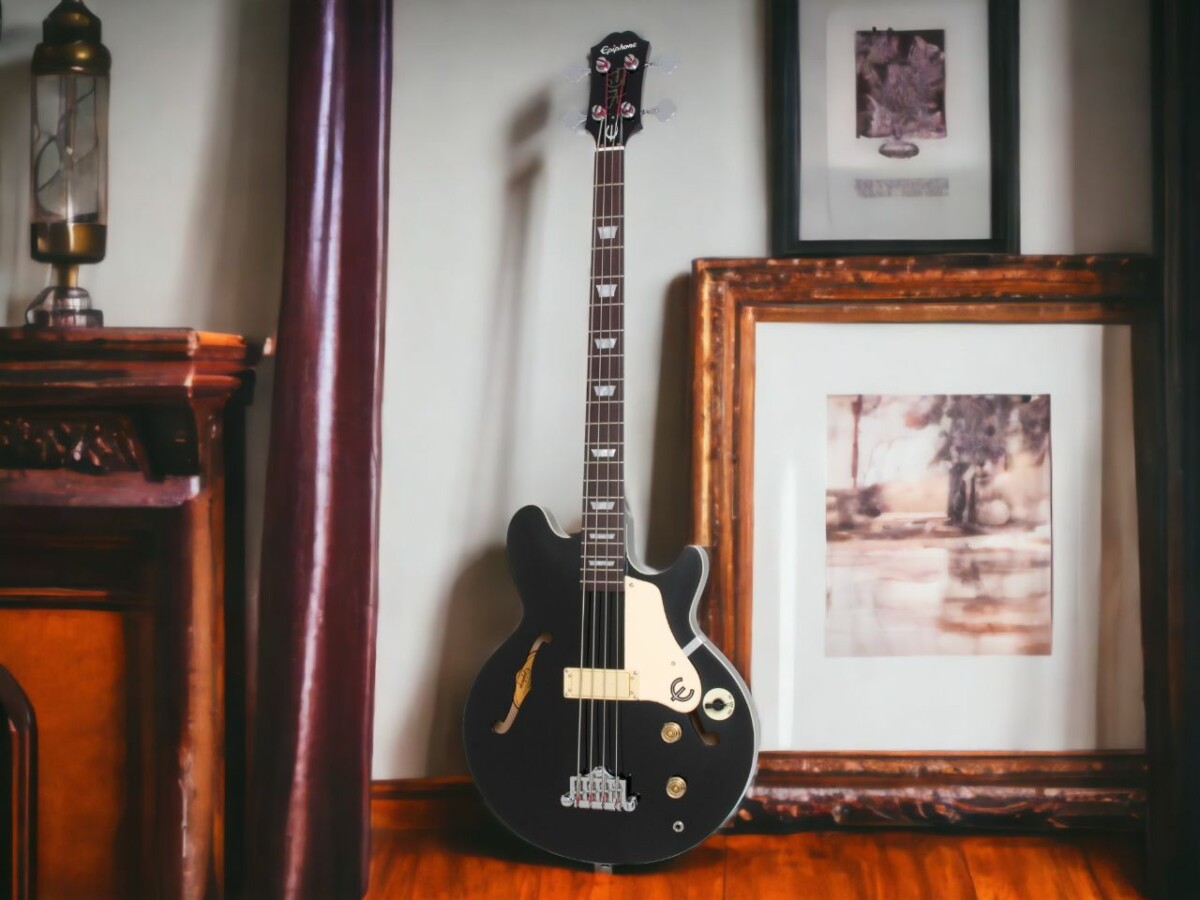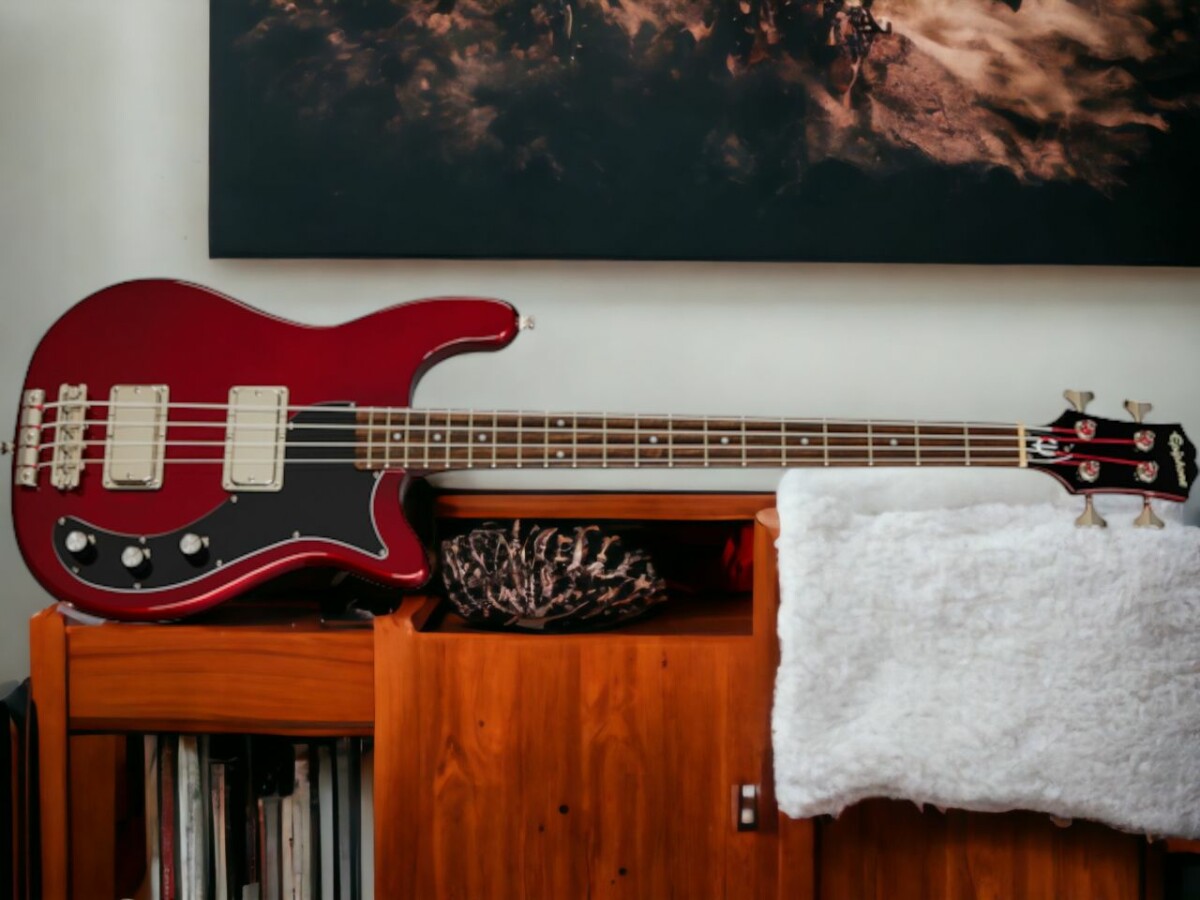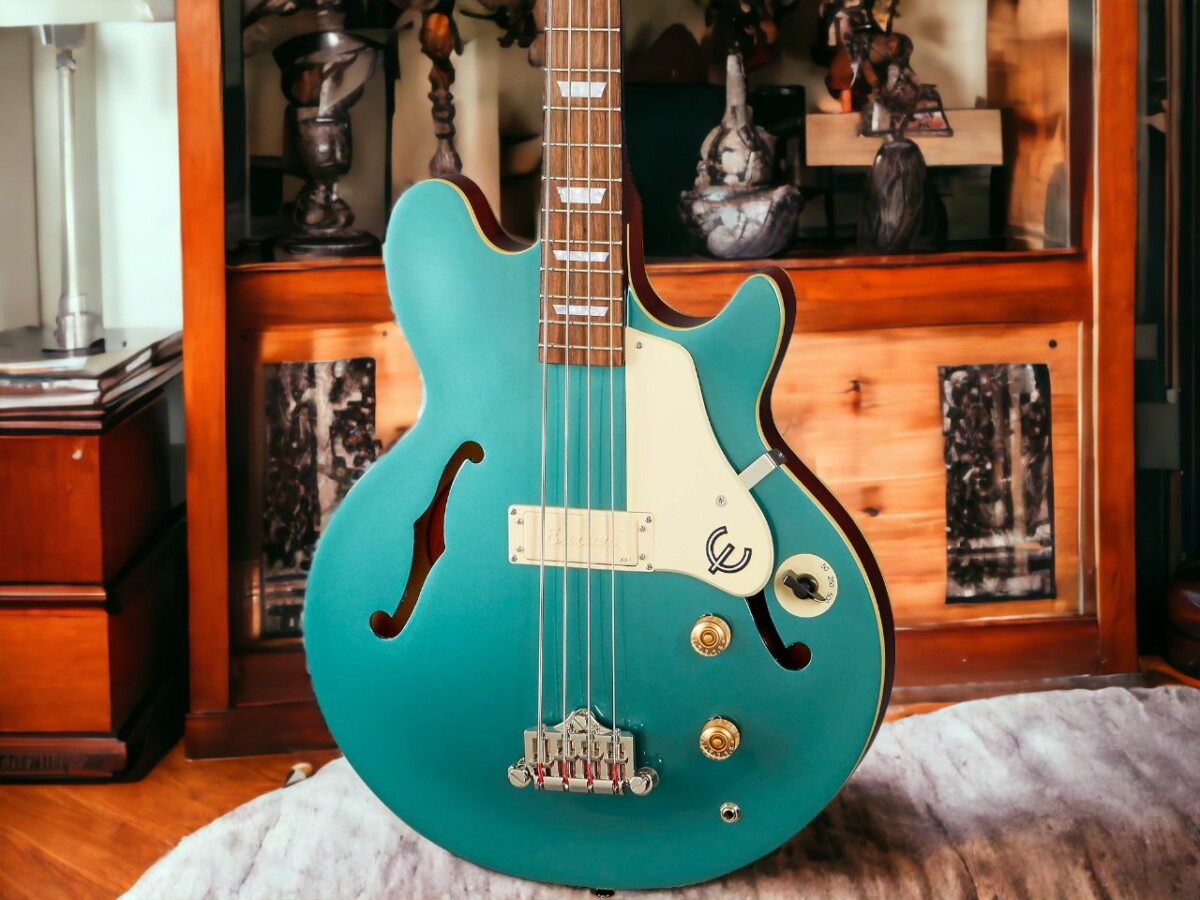You might be quick to assume that Epiphone bass guitars don’t really measure up, right? Hold up, don’t write them off just yet.
Epiphone has a pretty solid lineup of affordable, uniquely styled bass guitars that deserve a second look. Some bass players are all about that warm, deep sound they produce, while others might be hunting for something a little more adaptable.
Granted, options like Squier and Fender Jazz might give you a little more wiggle room. But hey, put in a bit of elbow grease and you can fine-tune an Epiphone to hit the sweet spot.
Let’s get into the nitty-gritty.
The Mixed Opinions on Epiphone Bass Guitars
Opinions on Epiphone bass guitars are all over the place, honestly. Some folks are all about them, saying they’re a solid bang for your buck. They dig the warm, deep sound these basses pump out, especially at the lower end – kind of their signature feature.
But then there’s the other side of the coin. The naysayers. They’re convinced there are better basses out there, offering a bit more flexibility than what Epiphone brings to the table. They’re throwing shade at Epiphone, comparing it to other big hitters in the bass world, like Squier, Sire, and the iconic Fender. According to them, these alternatives offer a much better combo of quality and versatility.
But hey, it’s not all doom and gloom for Epiphone. Models like the Thunderbird and Toby J-bass have carved out their own niche, with their unique charms and strengths. Sure, there are a few grumbles about comfort and design, but you can’t please everyone, right?
At the end of the day, it’s all about what sounds right to your ears and what feels good in your hands. It’s a very personal thing, this whole choosing a bass guitar business. So, in the grand scheme of things, it’s all down to what works for you and your jamming style.
A Closer Look at Specific Epiphone Bass Models
Alright, let’s get down to the nitty-gritty of some key Epiphone bass models.
Take the Epiphone Toby J bass, for example. This baby is renowned for its smooth playability and killer sound. Its skinny neck and deep bass notes make it an absolute delight to play and listen to.
But then, there’s the Thunderbird series. A little trickier to handle, if you ask me. Sure, it’s got a bold, raw tone that a lot of bass players are all about, but it’s also got some not-so-cool quirks. Neck diving and discomfort can be a real pain, especially if you’re on your feet for a lengthy jam session. It’s got a unique aesthetic, but the body shape doesn’t float everyone’s boat.
Bottom line, Epiphone basses are a mixed bag. So, here’s a pro tip: always take it for a test drive to make sure it’s the bass that truly vibes with you, both in sound and in feel.
Key Considerations When Purchasing an Epiphone Bass
Before you pull the trigger on that Epiphone bass you’ve been eyeing, there’s a few things you gotta consider. It’s not just about how much it’s gonna cost you. It’s also got to feel right and play smooth, otherwise what’s the point?
Here’s the rundown:
- Don’t just look at Epiphone – there’s tons of other affordable basses out there. Ever checked out Squier or Fender Jazz basses? You might find they pack more punch than you’d expect.
- Giving it a test ride before you buy is a must. We’re all different, and what works for one person mightn’t for the next. So, pick it up, play a few bars, see how it feels.
- Epiphone basses have these unique body shapes which mightn’t be everyone’s cup of tea. So, make sure you’re cool with it before you commit.
- If you’re feeling ambitious, you could always upgrade some parts. A new bridge, for example, could totally change the game when it comes to playability and tone.
- And don’t forget, not all Epiphones are created equal. Some models like the Thunderbird rock a slim neck while the Toby J-bass is known for its killer sound.
At the end of the day, the perfect bass is the one that matches your vibe and feels like an extension of you when you play. So, take your time, do your research, and find the bass that’s gonna make you shine.
Techniques for Improving the Performance of Epiphone Basses
If you’re a fan of bass guitars, you’ll know that with a little patience and the right tricks up your sleeve, you can seriously up your Epiphone bass game. Let’s get into it, shall we?
First off, switch out that bridge. It’s a game-changer. It can give your tone a makeover, making it richer and more robust.
Now for the setup. Tweaking the action and the intonation can make a world of difference. It’ll make your bass easier to play and seriously amp up your precision. Speaking of techniques, have you ever wondered if you can play a bass guitar with a pick? Exploring such methods can bring a unique vibe to your Epiphone bass sound. And don’t be afraid to mix up your playing style. Ever tried slapping or fingerstyle? They can bring a unique vibe to your Epiphone bass sound.
Let’s talk strings. Experimenting with different materials and gauges can totally change the sound and feel. It’s like giving your bass a brand new personality.
Alright, moving on to pickups. Installing different ones can really broaden your tonal range. It’s like adding new colors to your musical palette. By the way, if you’ve ever thought about enhancing the versatility of your bass, you might be curious if a capo can be used on a bass guitar.
Last but not least, consider using a preamp. It can give your bass signal a little TLC, boosting its clarity and depth. So, go ahead and make some tweaks to your Epiphone. It’s all about finding that optimal performance sweet spot.
Exploring Alternative Bass Guitar Brands to Epiphone
As you’re weighing up the pros and cons of an Epiphone bass, don’t forget to scope out some other killer brands that could be a better match for what you’re after. Try stacking up the sound of Epiphone against some other contenders like Squier, Sire, and Fender Jazz.
Take Squier basses, for instance. These bad boys, especially the Affinity Series, are known for delivering a pretty mean punch when it comes to tone, and they’re pretty easy on the wallet too. They’ve got a solid rep for delivering both quality and value.But just like any other instrument, bass guitars have their shelf life. It might be useful to know if a bass guitar can go bad to ensure the longevity of your investment.
Then there’s Sire basses. Players rave about the V7 series for their top-notch components and the sheer range of sounds you can get out of them. They often get the nod over pricier options in the market.
And let’s not forget Fender Jazz basses. These legends are famous for their bright, rich, full-bodied sound that gives you a ton of room to play around with your tones.




